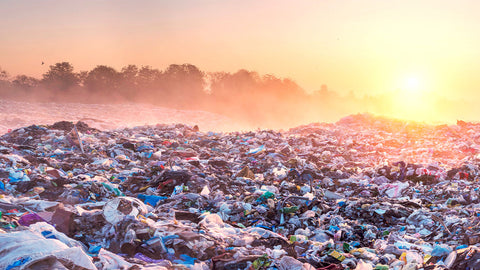Single-use plastic, especially disposable cups, is a major environmental problem around the world. It generates tons of waste every year and affects both the environment and the health of humans and animals. It is important to reduce the use of single-use plastic and promote more sustainable alternatives. This way we can create a better future for everyone.
Single-use plastic products are also a major problem in Switzerland. 20% of littering is caused by single-use plastic in connection with the consumption of food to go. Every year, more than two tons of single-use plastic end up in Swiss soil and surface water and ultimately decompose into microplastics. The microplastics enter the food chain via fish, can be inhaled through the air, absorbed through water or absorbed through the skin and pose an increasing threat to people and the environment.
If you extrapolate the figures from a German study to Switzerland, 2,977 tonnes of waste are generated every year just through the use of disposable cups for hot drinks, which corresponds to a volume of 75,089 m³. This includes not only cups that are disposed of at home, but also those that are thrown away in public. Disposable cups that are disposed of in public spaces are particularly problematic. They overfill the rubbish bins and spoil the environment through littering. As a result, around 43,318 m³ of waste accumulates in public spaces in Switzerland every year. This corresponds to almost the volume of 11 Olympic swimming pools or 288,791 bathtubs. Disposable cups are also one of the ten most common things found during beach clean-ups in Europe.
To reduce the use of single-use plastic and enable a better future, it is important to find the best alternatives. But is a reusable cup really the more sustainable option? Read more about this in our blog next week, which shows that the answer to this question depends on a number of factors.
Sources:
https://hammerdirt-analyst.github.io/IQAASL-End-0f-Sampling-2021/titlepage.html
https://www.umweltbundesamt.de/publikationen/oekologe-befassung-einweggetraenkebecher

